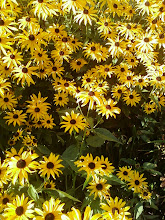I have always followed my curiosity – first to books, then to nature & science, and now to socio-economic issues. When I was young, I loved to gaze up at the stars, stretching my mind to comprehend the smallness of the Earth in its place in the Milky Way as well as to grasp my own smallness on a planet that seemed so vast. Nature, it seemed to me then, had a reassuring order about it: the sun always rising in the east, spring always following winter, water always flowing downhill …. Even later, while studying advanced chemistry, it seemed fairly straight-forward to learn chemical reactions, crystal structures, and thermodynamics. There were simple rules. And knowing the rules, some things in life were probable … even predictable! Science was easy. Significance, and the other hand, was much more difficult for me to understand.
Since I had a dual science major (Chemistry and Environmental Science), my exposure in college to social sciences and the humanities was limited. To me history contained nothing but facts and dates; literature, nothing but drama and anguish. Both history and literature (I thought) I could do without, or perhaps read on my own time when I felt the urge to do so. It is only now, having more years behind me, that I appreciate the connection and continuity that the disciplines I had neglected provide – they give us context. Just as thermodynamics can test for the possibility of a chemical reaction, history can be an assay of social reactions (both with their barriers to activation and dependence on reaction kinetics).
Social sciences and literature also help answer the question, what do we do with knowledge once gained? It is one thing to be able to understand and apply quantum physics; it is quite another to contemplate the ethics of doing so and to fully consider the social and environmental ramifications – not just of immediate or interim gains (economic or otherwise), but of the real long-term view. How we will be judged in the future’s history books and by the generations that follow ours? Will we be heralded, vilified, or just plain pitied for the choices we are making for our use of our scientific and technical knowledge? Do our current choices bring us closer together as humanity, or drive us to be isolated souls surrounded by the remnants of wasted resources and destroyed habitats?
So here I find myself, nearing middle-age and playing catch-up on all that I didn’t want to learn or to pay attention to in school … only now seeking to gain knowledge from the context that connects science to our collective natural soul.
Tuesday, September 8, 2009
Subscribe to:
Post Comments (Atom)




Very nicely said... This may be a common theme for scientist; however, there have always been a small percentage who relish the technical challenges of science and seek to understand how it impacts society... contributions need not be large, just meaningful.
ReplyDelete